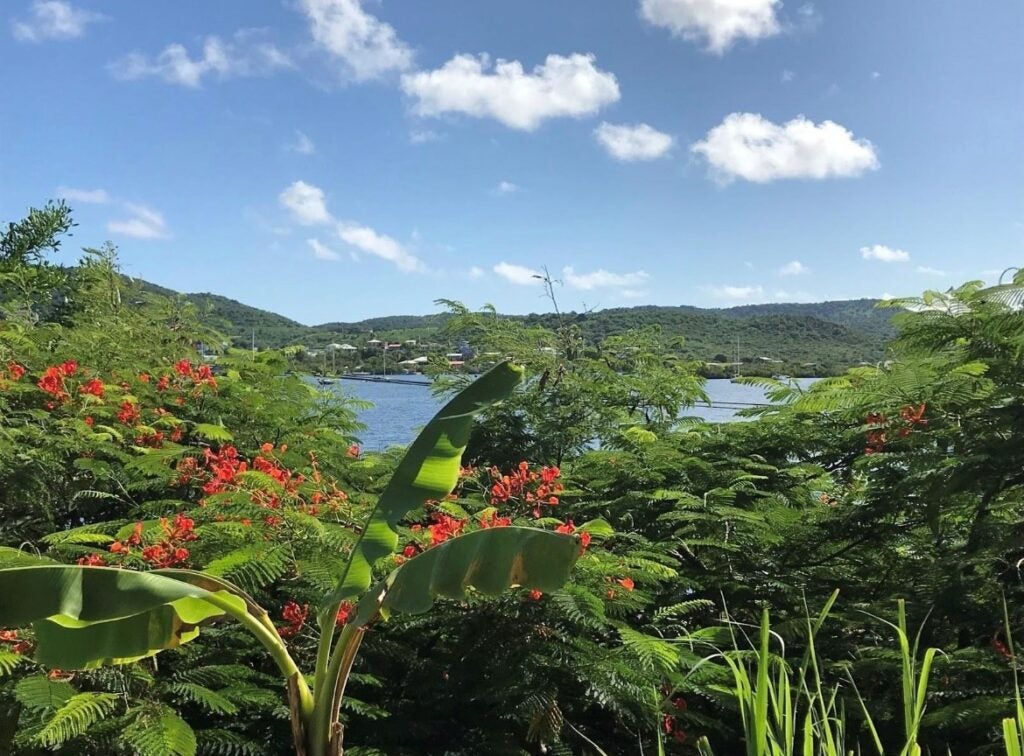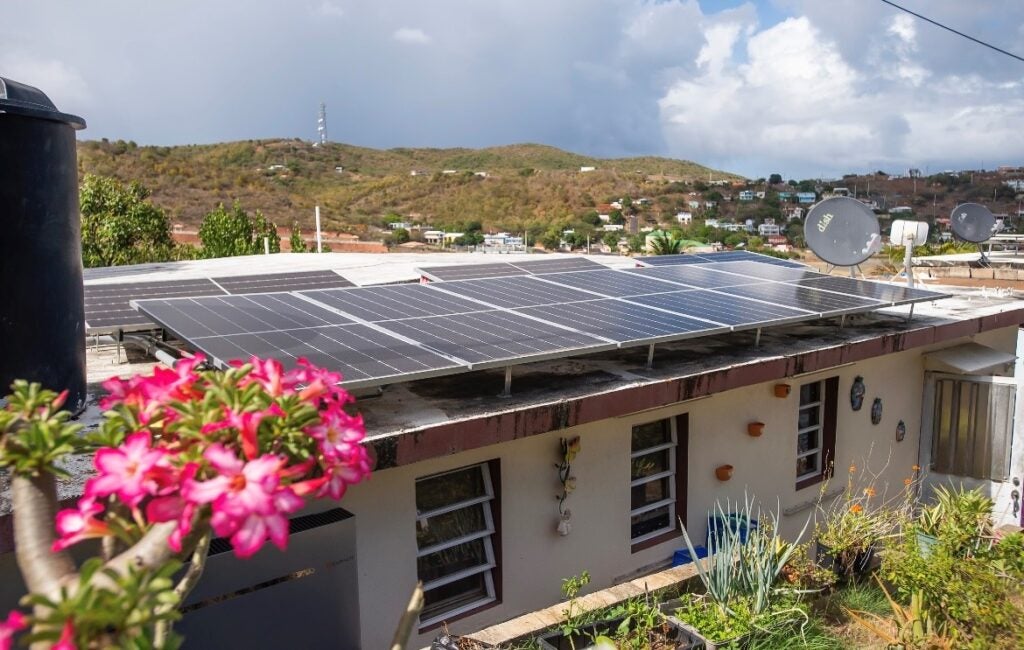Chronic power outages, food disruptions and climate-related disasters have become commonplace across the Caribbean. But amidst these challenges, there’s room for optimism. Increased funding, growing awareness, supportive policies and community leadership offer an opportunity for rebuilding and strengthening resilience in the Caribbean and small island developing states, or SIDS, around the world.
EDF has a long history of partnering in the Caribbean and in developing nations around the globe to foster resilience and bring climate solutions to scale. Now, to build on this work, an EDF delegation will be participating in the 4th International Conference on Small Island Developing States, organized by the United Nations on the island nation of Antigua and Barbuda. The conference, whose theme is ‘charting a course toward resilient prosperity,’ will produce a new plan of action to address critical challenges faced by SIDS related to climate change, biodiversity loss, and growing debt.
Building resilience in small island states: what to expect at the 4th SIDS conference Click To Tweet
At the conference EDF will support adoption of the plan and several pathways for implementing and funding the plan.
A successful future for SIDS
The central outcome of SIDS4 will be a new roadmap for action for small island states on sustainable development and climate change, called ‘The Antigua and Barbuda Agenda for SIDS.’ The declaration will build off the prior 10-year plan of action, the Samoa Pathway, with an emphasis on improving data collection, monitoring and evaluation.
EDF is looking to see agreement on an ambitious roadmap that incorporates calls to action and measurable objectives towards more resilient and prosperous communities, clean energy transition, sustainable resource management, biodiversity conservation and enhanced global cooperation.
A successful outcome will also require progress on means of implementation, to ensure that the roadmap’s objectives can be realized. This includes greater access to finance flows, as small island states often lack resources to address compounding challenges. Caribbean states in particular face massive shortfalls of finance for climate action, especially from the private sector. At SIDS4, the UN Secretary General will convene a high-level meeting to discuss how to better mobilize resources to tackle the unique challenges that SIDS face, which has the potential to spur action from key actors including international financial institutions and the private sector.
EDF’s work in the Caribbean
As an organization that has been actively partnering across the Caribbean and Latin America, EDF focuses on crafting effective, equitable and lasting solutions that address daily challenges while fortifying long-term resilience to climate change.
Our work in Cuba, Puerto Rico, Mexico, Belize and The Bahamas blends grassroots, community-centered strategies with policy advocacy at the national level and, by mobilizing private and public financing at a large scale, we are driving science-based fisheries management, sustainable ocean practices, biodiversity conservation and clean energy project development. EDF is also a proud member of GLISPA — the Global Island Partnership — an important platform which catalyzes cooperation on these issues.
Going forward, EDF’s goal is clear: Guided by a commitment to meaningful policies, environmental justice and economic development, we strive to collaborate with island nations to create a brighter, more prosperous and safer future.
EDF’s work in the region has supported many meaningful steps forward:
- In Cuba, EDF developed new partnerships to foster marine conservation, working to assess coral reef health and strengthen biodiversity commitments, alongside creating learning networks for sustainable fisheries.
- In Puerto Rico, EDF supported the island’s energy transition by helping to craft policies that mandate a 100% renewable future and through developing model community-based solar projects that ensure energy access and resilience to the most vulnerable households.
- In Mexico, EDF partnered with fishers from the Yucatan coast to rebuild and recover a major grouper fishery, supporting 20,000 families.
- In Belize, EDF engaged with government authorities to strengthen resilience of fisheries and expand marine ecosystem protection.
- In the Bahamas, EDF is collecting and sharing ocean data to improve hurricane prediction models. We are working with coastal fishing communities to develop pathways to develop small scale fishing boats powered by renewable energy. We are also partnering with fishermen and community leaders to prevent large scale developments that threaten world class ecosystems.
Milestones for the next decade
To make the most of this moment, EDF’s delegation to SIDS4 will be participating in interactive dialogues with other stakeholders and civil society organizations, building and strengthening partnerships and identifying new opportunities to make an impact.
Unlike many other UN conferences which meet annually, small island states only gather once per decade to set an agenda for the next 10 years. This means that SIDS4 is an especially important milestone.
We will also be tracking discussions and events around several key issues, including:
- Financing the energy transition in SIDS.
- Decarbonizing the shipping sector to create more resilient economies.
- Enhancing resilience of the Water-Food-Energy nexus.
- Addressing challenges of climate-disasters, sea level rise and climate-driven human mobility.
- Conserving biodiversity through nations’ 30×30 commitments.
The outcomes of SIDS4 will help build momentum for international action on climate change in the years to come. The 2026 UN Climate Change Conference — COP31 — will likely be co-hosted by Australia and Pacific Island leaders, meaning that SIDS will soon be in the driver’s seat for the international climate agenda. A successful outcome at SIDS4 can lay the groundwork for success at COP31, putting the global community in a stronger position to meet its climate goals.



